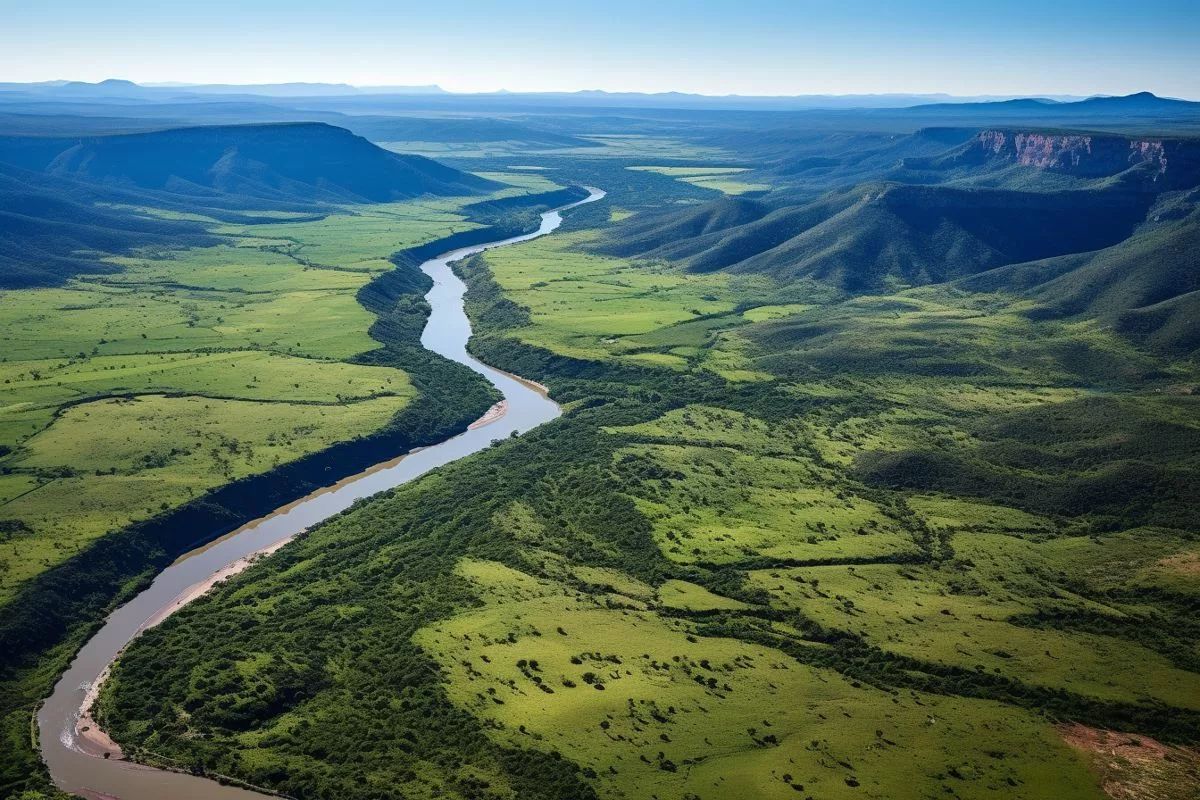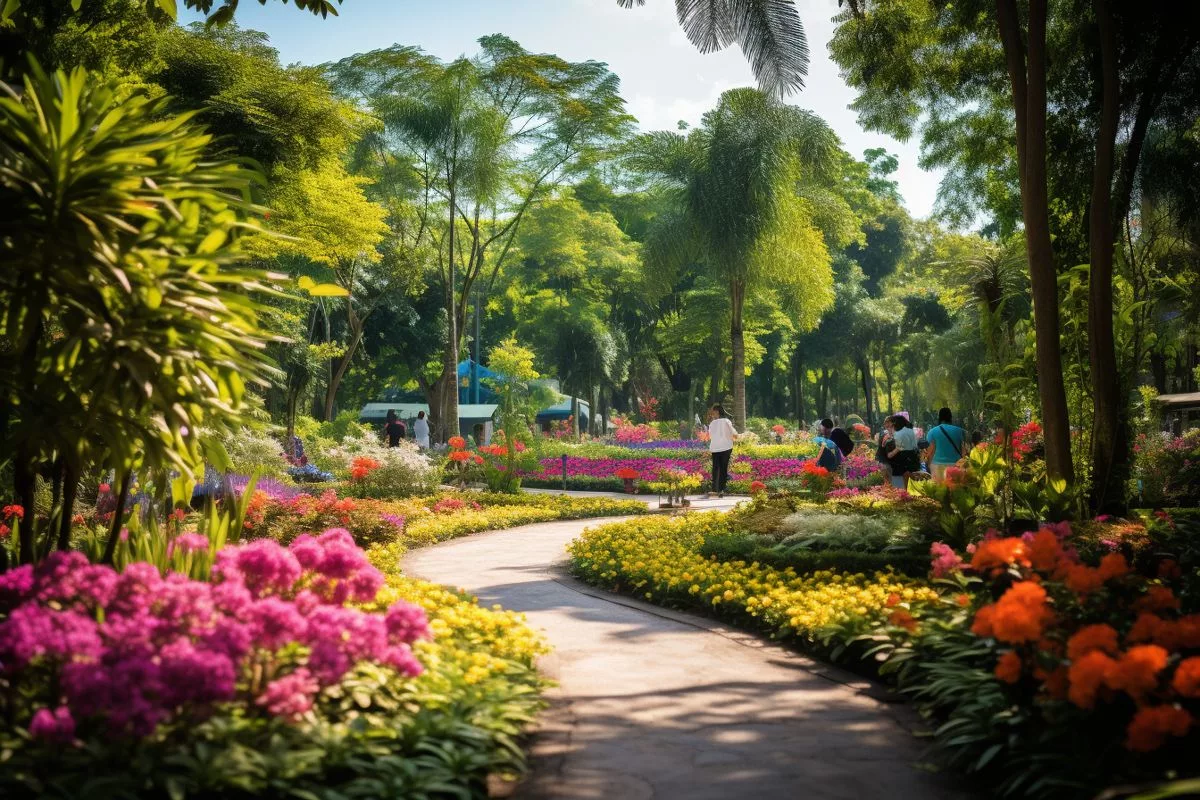The Mzimvubu Water Project is a sustainable development effort in the Eastern Cape’s Sqhungqwini Village, involving the construction of an access road and the Ntabelanga Dam to provide vital water resources for neighboring communities. The collaboration between the South African government, traditional councils, local municipalities, and neighboring districts demonstrates a strong commitment to progress and sustainability. The project highlights the significance of community involvement, transparency, and public engagement, ensuring long-term water resource availability and encouraging socio-economic growth. It symbolizes a beacon of hope for a sustainable future and national unity.
What is the Mzimvubu Water Project?
The Mzimvubu Water Project is a sustainable development project in the Eastern Cape’s Sqhungqwini Village. The project involves constructing an access road and building the Ntabelanga Dam to serve as a vital water resource for neighboring communities. It is a collaborative effort by the South African government, traditional councils, local municipalities, and neighboring districts to invest in a sustainable future.
A Powerful Collaboration for Progress
Deep within the Eastern Cape’s heart, a significant venture steadily unfurls in the charming Sqhungqwini Village, Tsolo. The Mzimvubu Water Project, an effort crystallizing the spirit of common progress and green sustainability, has managed to grasp the attention of notable South African leaders.
The village was alive with anticipation on November 13th, 2023. Senzo Mchunu, the Water and Sanitation Minister, along with Deputy Ministers David Mahlobo and Judith Tshabalala, arranged a meeting with the Elangeni and Northern AmaMpondomise Traditional Councils. Their aim was to delve into the details of the Mzimvubu Water Project, a venture with immense potential for progress.
Premier Oscar Mabuyane led the Eastern Cape’s leadership in this essential meeting. It reached out to the local municipalities, Mhlontlo and Elundini, and the districts of O.R Tambo, Alfred Nzo, and Joe Gqabi, all impacted by the project. The meeting’s goal was to shed light on the progress made and to chart out future plans.
Ensuring Progress and Promising Potential
The Mzimvubu Water Project is under the proficient guidance of the Department of Water and Sanitation’s (DWS) Construction Unit. This unit is near completion of the project’s first phase, which involves constructing an access road to the project site. This crucial road is almost complete, with 90% of the work done.
The project’s second stage is equally, if not more, crucial. This phase entails building the Ntabelanga Dam, a venture set to kick off shortly. Once finished, this dam will serve as a vital water resource for neighboring communities.
Minister Mchunu, along with his deputy ministers, ensured to visit the future site of the dam wall. This act was not just symbolic but a clear demonstration of their commitment and interaction with the project.
Transparency and Public Engagement
Political and traditional leaders aren’t the only ones intrigued by the Mzimvubu Water Project. The media have also shown interest. A Media Doorstop was organized on the meeting day, encouraging media representatives to visit the project site. This act reinforced the government’s commitment to openness and public involvement.
The project, reflecting the marvels of modern engineering, also underlines the significance of community involvement. From traditional councils to local municipalities and neighboring districts, the project has united diverse factions and fostered a sense of shared responsibility.
The South African government, through the Mzimvubu Water Project, has demonstrated its dedication to sustainable development. By tapping into the Mzimvubu River’s potential, they are addressing current water needs while investing in a sustainable future, guaranteeing long-term water resource availability.
United in Sustainability
The involvement of various government and non-government bodies in the Mzimvubu Water Project portrays the nation’s solid stand against environmental issues. It brings to light the collective vision of encouraging socio-economic growth through sustainable projects.
The Mzimvubu Water Project reminds us of the critical role water plays in our society. It underlines the need to invest in water infrastructure to support communities and spur socio-economic growth.
The Mzimvubu Water Project is more than a mere infrastructure venture. It embodies the spirit of communal growth, the significance of environmental sustainability, and the nation’s shared responsibility towards its resources. As it progresses, it symbolizes national unity and a beacon of hope for a sustainable future.
1. What is the Mzimvubu Water Project?
The Mzimvubu Water Project is a sustainable development project in the Eastern Cape’s Sqhungqwini Village, involving the construction of an access road and the Ntabelanga Dam to provide vital water resources for neighboring communities.
2. Who is involved in the Mzimvubu Water Project?
The project is a collaborative effort between the South African government, traditional councils, local municipalities, and neighboring districts.
3. What is the progress made on the Mzimvubu Water Project?
The project’s first phase, which involves constructing an access road to the project site, is almost complete with 90% of the work done. The second stage, building the Ntabelanga Dam, is set to kick off shortly.
4. What is the significance of community involvement in the Mzimvubu Water Project?
The project highlights the significance of community involvement, ensuring long-term water resource availability, and encouraging socio-economic growth.
5. What is the government’s commitment to transparency and public engagement in the Mzimvubu Water Project?
The government has demonstrated its commitment to openness and public involvement through a Media Doorstop organized on the meeting day, encouraging media representatives to visit the project site.
6. What does the Mzimvubu Water Project symbolize?
The Mzimvubu Water Project symbolizes national unity, a beacon of hope for a sustainable future, and the shared responsibility towards its resources. It reminds us of the critical role water plays in our society and the need to invest in water infrastructure to support communities and spur socio-economic growth.








